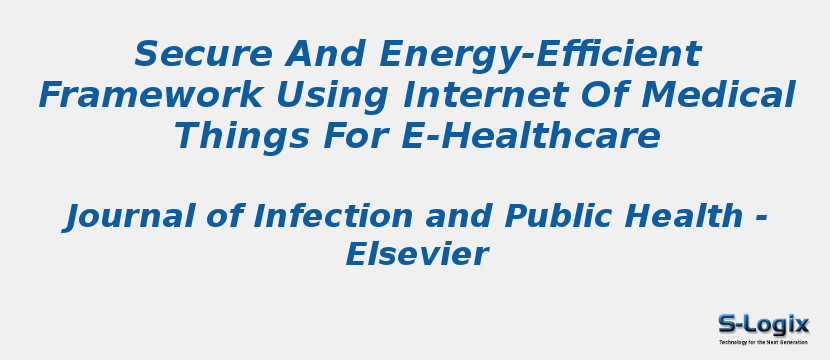Research Area: Internet of Things
In various fields, the internet of things (IoT) gains a lot of popularity due to its autonomous sensors operations with the least cost. In medical and healthcare applications, the IoT devices develop an ecosystem to sense the medical conditions of the patients such as blood pressure, oxygen level, heartbeat, temperature, etc. and take appropriate actions on an emergency basis. Using it, the healthcare-related data of patients is transmitted towards the remote users and medical centers for post-analysis. Different solutions have been proposed using Wireless Body Area Network (WBAN) to monitor the medical status of the patients based on low powered biosensor nodes, however, preventing increased energy consumption and communication costs are demanding and interesting problems. The issue of unbalanced energy consumption between biosensor nodes degrades the timely delivery of the patients information to remote centers and gives a negative impact on the medical system. Moreover, the sensitive data of the patient is transmitting over the insecure Internet and prone to vulnerable security threats. Therefore, data privacy and integrity from malicious traffic are another challenging research issue for medical applications. This research article aims to a proposed secure and energy-efficient framework using Internet of Medical Things (IoMT) for e-healthcare (SEF-IoMT), which primary objective is to decrease the communication overhead and energy consumption between biosensors while transmitting the healthcare data on a convenient manner, and the other hand, it also secures the medical data of the patients against unauthentic and malicious nodes to improve the network privacy and integrity. The simulated results exhibit that the proposed framework improves the performance of medical systems for network throughput by 18%, packets loss rate by 44%, end-to-end delay by 26%, energy consumption by 29%, and link breaches by 48% than other states of the art solutions.
Keywords:
Author(s) Name: Tanzila Saba,Khalid Haseeb,Imran Ahmed,Amjad Rehman
Journal name: Journal of Infection and Public Health
Conferrence name:
Publisher name: Elsevier
DOI: 10.1016/j.jiph.2020.06.027
Volume Information: Volume 13, Issue 10, October 2020, Pages 1567-1575
